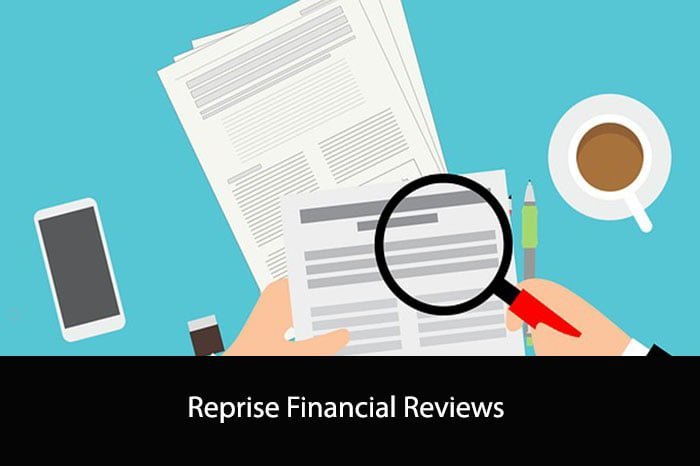When embarking on the journey of securing a loan, it’s crucial to understand every aspect of the process, including the legal fees associated with it. This article will provide an in-depth exploration of how to calculate loan agreement legal fees, ensuring that you are well-informed about the costs involved and can make educated decisions throughout the process.

1. Understanding Loan Agreement Terms and Conditions
Before diving into the calculation of legal fees, it’s essential to grasp the specific terms and conditions associated with a loan agreement. These include:
1.1. Interest Rate
The interest rate is a critical component of any loan agreement, as it dictates the cost of borrowing money. This rate will impact the overall cost of legal fees, as it directly affects the total amount of money being borrowed.
1.2. Repayment Schedule
The repayment schedule outlines the length and frequency of payments made to repay the loan. This aspect may influence the complexity of the loan agreement, which can, in turn, affect the legal fees involved.
1.3. Additional Costs
Additional costs may be associated with a loan agreement, such as credit report fees, appraisals, and other ancillary services. These costs should be factored into the overall legal fee calculation.
1.4. Prepayment Penalties
Some loan agreements include prepayment penalties, which are fees charged if the borrower decides to pay off the loan early. These penalties should be considered when calculating legal fees, as they can add to the overall cost of borrowing.
2. Factors Influencing Loan Agreement Legal Fees
Several factors determine the legal fees associated with a loan agreement. These factors include:
2.1. Complexity of the Loan Agreement
The complexity of the loan agreement plays a significant role in determining the legal fees. More complex agreements, such as those involving multiple lenders or large sums of money, typically incur higher legal fees than simpler loans.
2.2. Research and Negotiation
The amount of research and negotiation involved in crafting a loan agreement can also impact legal fees. More extensive research and negotiation efforts may result in higher legal costs.
2.3. Time Spent on Document Evaluation
The time spent evaluating documents related to the loan agreement, including reviewing and providing advice on the agreement, can contribute to the overall legal fees.
3. Factoring Legal Costs into Loan Shopping
When searching for a suitable loan, it’s crucial to factor in the legal costs associated with the agreement. This step helps ensure that the total cost of borrowing remains within budget.
3.1. Comparing Loan Options
Knowing how much to expect for legal fees can help borrowers determine if they are getting a good deal when comparing various loan options. Understanding how to calculate loan agreement legal fees is essential to making informed decisions about financing.
3.2. Additional Costs to Consider
In addition to legal fees, borrowers should consider any additional costs associated with loan agreements, such as filing fees and recording fees. These costs can add to the overall cost of borrowing and should also be taken into account when calculating legal fees.
4. Loan Legal Fees in Different Countries
Loan legal fees may vary depending on the country or region in which the loan is being secured. For example, the legal fees associated with a loan in Malaysia typically depend on the amount of money being borrowed and the type of loan taken.
4.1. Personal Loans
In Malaysia, if an individual seeks to take out a personal loan of up to RM50,000 (Malaysian Ringgit), the legal fee is usually 0.5% of the total loan sum.
4.2. Mortgages and Secured Loans
For mortgages or other secured loans, the legal fee could be as much as 1% of the total loan amount in Malaysia. It’s important to note that these fees may vary from lender to lender, so it’s always best to check with your bank or financial institution before taking out any loan.
4.3. Fee Waivers
Some lenders may waive certain fees, such as legal fees, for specific types of loans. It’s always worth asking about this when looking for a loan to potentially save on costs.
5. Researching Your Lender
Before signing any loan contracts, it’s vital to research your lender thoroughly to ensure you are getting the best deal possible. This step could save you money in the long run by reducing potential legal fees.
5.1. Comparing Lenders
Compare different lenders to find the best deal on legal fees and other loan costs. This process may involve looking at multiple lenders and comparing their fees, interest rates, and other terms.
5.2. Reading Loan Documents Carefully
It’s essential to read all loan documents carefully before agreeing to any loans, as some lenders may charge hidden fees or have other conditions that may not be immediately obvious. Taking these precautions will help you get the most out of your loan while minimizing any additional costs.
6. Working with a Qualified Attorney
Working with a qualified attorney can help ensure that all aspects of the loan agreement are adequately addressed and accounted for in the legal fees. With their assistance, borrowers can rest assured that they have made an informed decision about financing.
6.1. Expertise in Loan Agreements
An attorney with expertise in loan agreements can provide valuable insights and guidance throughout the process, helping borrowers make informed decisions and potentially save on legal fees.
6.2. Negotiating Legal Fees
A qualified attorney can potentially negotiate lower legal fees on behalf of the borrower. This negotiation could lead to significant savings on the overall cost of borrowing.
7. Calculating Loan Agreement Legal Fees: Step by Step
To calculate loan agreement legal fees, follow these steps:
- Determine the complexity of the loan agreement.
- Estimate the time spent on research, negotiation, and document evaluation.
- Factor in any additional costs, such as prepayment penalties, filing fees, and recording fees.
- Consider the specific terms and conditions of the loan, such as interest rate and repayment schedule.
- Research your lender to ensure you are getting the best deal possible.
8. Monitoring Legal Fees Throughout the Loan Process
Once you have an understanding of how to calculate loan agreement legal fees, it’s essential to monitor these fees throughout the loan process. This monitoring can help you stay on track and ensure that the total cost of borrowing remains within budget.
8.1. Regularly Review Legal Fees
Regularly review legal fees as the loan process unfolds to ensure that any changes or additional fees are accounted for in your overall budget.
8.2. Communicate with Your Attorney
Maintain open communication with your attorney regarding legal fees. This communication can help you stay informed about any changes and allow you to address any concerns or questions you may have.
9. Final Thoughts on Loan Agreement Legal Fees
Understanding how to calculate loan agreement legal fees is a crucial aspect of securing financing. By considering the specific terms and conditions of the loan, as well as factors such as complexity and additional costs, borrowers can make educated decisions about financing and feel confident in their choices.

10. Resources for Further Learning
For additional information on how to calculate loan agreement legal fees, consider consulting the following resources:
- Financial institutions and banks: Many lenders offer resources and guidance on loan agreements and associated legal fees.
- Legal professionals: Consult with an attorney who specializes in loan agreements for expert advice and assistance.
- Online resources: Research online articles and guides that provide detailed information on the topic of loan agreement legal fees.
By utilizing these resources, borrowers can further their understanding of how to calculate loan agreement legal fees and make well-informed decisions throughout the financing process.





